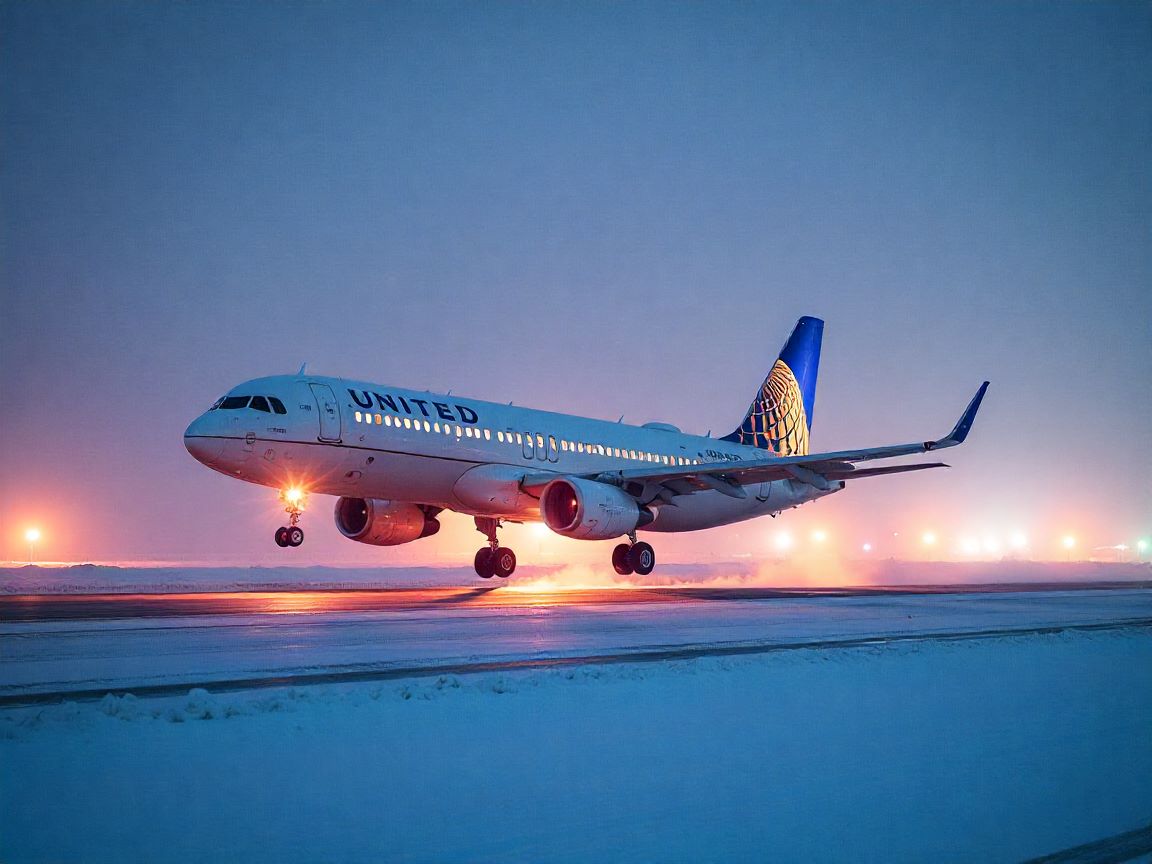Home » AIRLINE NEWS » United States Faces Major Air Travel Disruptions as United Airlines Flight Cancellations Skyrocket, New Update You Need to Know
Sunday, July 27, 2025
Recent disruptions at Newark Liberty International Airport have put the spotlight on the serious issue of United Airlines flight cancellations caused by air traffic controller shortages. With rising delays and canceled flights, passengers have experienced significant inconvenience. These issues, affecting thousands of travelers, have been driven by staffing challenges within the air traffic control system. This article examines the causes behind these disruptions and what the government is doing to address them.
The Root Cause of Flight Cancellations
The wave of United Airlines flight cancellations at Newark Liberty International Airport began when the airline was forced to cut 35 daily flights due to a combination of staff shortages and technological failures in the air traffic control system. United Airlines cited the lack of available air traffic controllers at the airport as the key factor in these disruptions.
Newark’s air traffic control tower has long been understaffed, with reports revealing that over one-fifth of the facility’s controllers had either left their positions or were unavailable. The FAA’s inability to fully staff key airports, such as Newark, has led to significant delays, with some arriving flights delayed by nearly two hours. The delays are further exacerbated by outdated air traffic control technology that frequently malfunctions, compounding the problem.
Government’s Response to the Crisis
Recognizing the severity of the situation, the federal government has stepped in with plans to resolve these staffing and technology issues. The Trump administration announced initiatives aimed at addressing the staffing shortages by ramping up recruitment efforts for air traffic controllers. The FAA has also promised to upgrade its air traffic control systems, which have been outdated for years, to ensure smoother and safer operations.
Transportation Secretary Sean Duffy discussed the urgent need to upgrade air traffic control infrastructure, emphasizing the challenges posed by the failure of equipment that is critical to managing busy airports. Additionally, the government has implemented measures to retain experienced controllers, such as offering incentives to prevent them from retiring early.
Challenges in Fixing Air Traffic Control System
Despite these measures, solving the problem remains a challenge. The National Air Traffic Controllers Association (NATCA) pointed out that while these efforts are a step in the right direction, the U.S. air traffic control system is long overdue for modernization. The union has stressed the need for comprehensive upgrades to both technology and the air traffic control workforce to prevent future disruptions.
Without these improvements, airports like Newark Liberty will continue to struggle with delays and cancellations. The FAA is working to balance the need for more controllers with the technological infrastructure required to support them, but this process takes time.
The Impact on Passengers and Airlines
For passengers, the air travel disruptions caused by these staffing shortages have been frustrating. With the reduction in daily flights from Newark, United Airlines passengers have faced unpredictable delays, diversions, and cancellations. The airline is one of many impacted by this crisis, but Newark’s specific issues have drawn the most attention due to its high volume of flights.
The situation also comes at a time when air travel demand is rising, and passengers are already dealing with uncertainty over the broader economy. Factors like the ongoing trade tensions and inflation have led some people to rethink their travel plans, adding to the pressure on airlines and airports already struggling with staffing issues.
What Travelers Can Expect
While steps are being taken to address the staffing shortages, the disruptions may persist in the short term. Travelers planning to fly from Newark or other busy airports should be prepared for potential delays. The FAA’s efforts to recruit new controllers and improve technology will gradually reduce the impact of these issues, but for now, passengers may need to adjust their expectations regarding flight times and schedules.
The Road Ahead for U.S. Air Travel
The crisis at Newark is a symptom of a larger, systemic issue facing the U.S. air traffic control system. As more people return to air travel, the need for better infrastructure and sufficient staffing has never been clearer. The FAA and the U.S. government are working on solutions, but it is essential to understand that the process of revamping the air traffic control system will take time.
The hope is that these efforts will lead to more reliable air traffic management, reducing delays and enhancing safety at airports across the country. While progress is being made, it will be some time before all the issues are resolved. In the meantime, passengers should remain vigilant and keep an eye on their flight statuses, especially if traveling through major hubs like Newark.
Conclusion
The ongoing United Airlines flight cancellations at Newark Liberty International Airport serve as a stark reminder of the challenges facing the U.S. air travel system. The current staffing shortages and outdated technology have created significant disruptions, but the government is taking action. However, the solution will require time and substantial investment in both human resources and infrastructure. As these changes take effect, air travelers can expect gradual improvements, though short-term disruptions are still likely.

